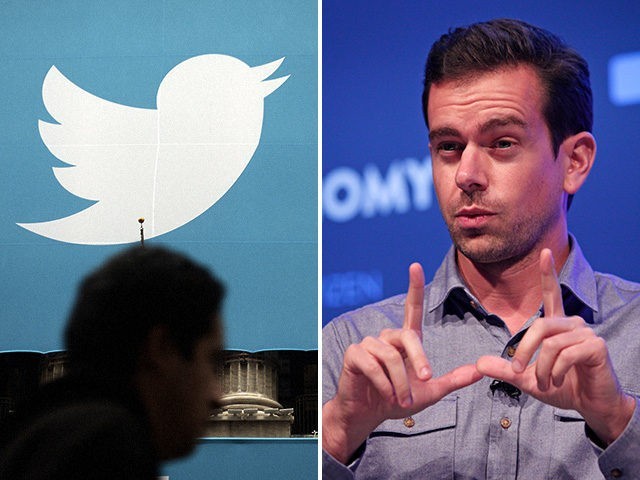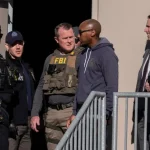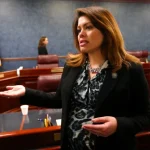

Elon Musk’s Twitter released another batch of internal discussions on Friday, which revealed that executives at the social media company had met with federal agencies amid the Hunter Biden laptop story, and that the FBI reported tweets it didn’t like to workers at the company.
On Friday night, journalist Matt Taibbi posted a lengthy Twitter thread — the third release of what are known as “Twitter Files,” which include revelations that federal agencies meddled with posts on the platform, among other notable issues.
1. THREAD: The Twitter Files
THE REMOVAL OF DONALD TRUMP
Part One: October 2020-January 6th— Matt Taibbi (@mtaibbi) December 9, 2022
Internal conversations via the messaging program Slack showcased Twitter executives “getting a kick out of intensified relationships with federal agencies,” Taibbi noted.
“I’m a big believer in calendar transparency. But I reached a certain point where my meetings became… very interesting… to people and there weren’t meeting names generic enough,” former Twitter “Trust and Safety” head Yoel Roth said in an internal chat.
In a follow-up message, a seemingly-amused Roth went on to suggest that his meetings should be titled, “Very Boring Business Meeting That Is Definitely Not About Trump :)” and “DEFINITELY NOT meeting with the FBI I SWEAR.”
11. After J6, internal Slacks show Twitter executives getting a kick out of intensified relationships with federal agencies. Here’s Trust and Safety head Yoel Roth, lamenting a lack of “generic enough” calendar descriptions to concealing his “very interesting” meeting partners. pic.twitter.com/kgC4eGykcO
— Matt Taibbi (@mtaibbi) December 9, 2022
Other documents suggest that the FBI, DHS, and Office of the Director of National Intelligence (DNI) met with Roth about the New York Post‘s bombshell Hunter Biden laptop story, which Twitter — and Facebook — infamously censored during the 2020 presidential election.
“We blocked the NYP story, then we unblocked it… and now we’re in a messy situation where our policy is in shambles, comms is angry, reporters think we’re idiots,” Roth lamented in an internal chat. “In short, FML [Fuck My Life].”
20. This post about the Hunter Biden laptop situation shows that Roth not only met weekly with the FBI and DHS, but with the Office of the Director of National Intelligence (DNI): pic.twitter.com/s5IiUjQqIY
— Matt Taibbi (@mtaibbi) December 9, 2022
“Some of Roth’s later Slacks indicate his weekly confabs with federal law enforcement involved separate meetings,” Taibbi added, sharing another document in which Roth “ghosts the FBI and DHS, respectively, to go first to an ‘Aspen Institute thing,’ then take a call with Apple.”
In another document, the FBI can be seen reporting tweets to Twitter executives, who then sent the tweets to their internal Slack channel called “enforcement.”
“Here, the FBI sends reports about a pair of tweets, the second of which involves a former Tippecanoe County, Indiana Councilor and Republican named @JohnBasham claiming ‘Between 2% and 25% of Ballots by Mail are Being Rejected for Errors.’”
“We just got a report from the FBI concerning 2 tweets,” an internal Twitter chat reads.
24. Here, the FBI sends reports about a pair of tweets, the second of which involves a former Tippecanoe County, Indiana Councilor and Republican named @JohnBasham claiming “Between 2% and 25% of Ballots by Mail are Being Rejected for Errors.” pic.twitter.com/KtigHOiEwF
— Matt Taibbi (@mtaibbi) December 10, 2022
“The FBI-flagged tweet then got circulated in the enforcement Slack,” Taibbi explained. “Twitter cited Politifact to say the first story was ‘proven to be false.’”
Taibbi added that while he was told the Trump campaign and Republicans had also flagged content, he couldn’t find any of it mentioned in Twitter’s “enforcement” Slack channel.
“Examining the entire election enforcement Slack, we didn’t see one reference to moderation requests from the Trump campaign, the Trump White House, or Republicans generally. We looked. They may exist: we were told they do. However, they were absent here,” Taibbi said.
In addition to federal agencies using Twitter employees as lackeys to censor content on social media, Friday night’s Twitter Files also revealed that executives at the company had already established the “framework” for banning Donald Trump’s account well before the events of January 6, and used the Capitol riots as their excuse to finally blacklist the President.
You can follow Alana Mastrangelo on Facebook and Twitter at @ARmastrangelo, and on Instagram.






